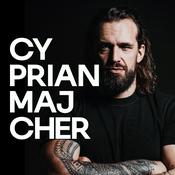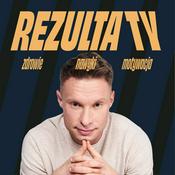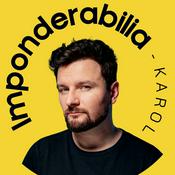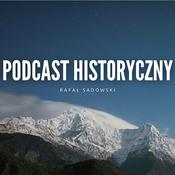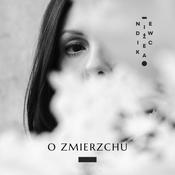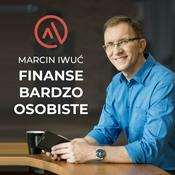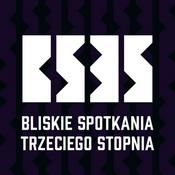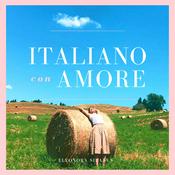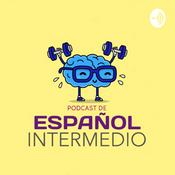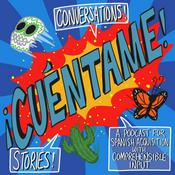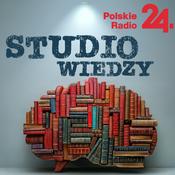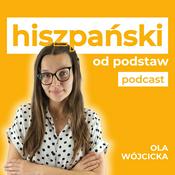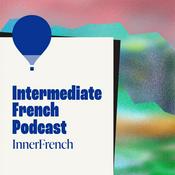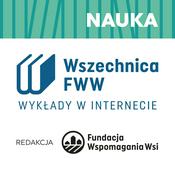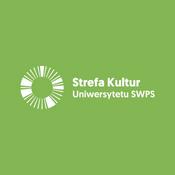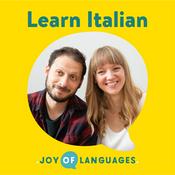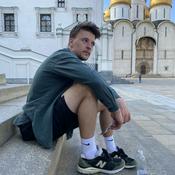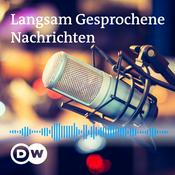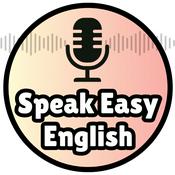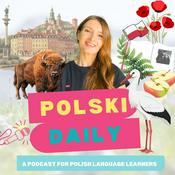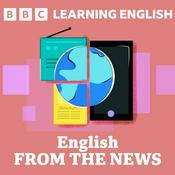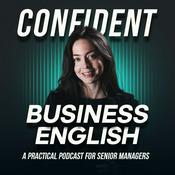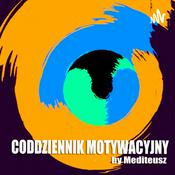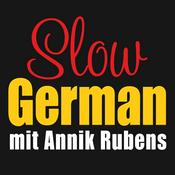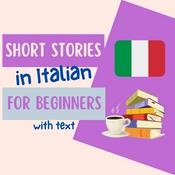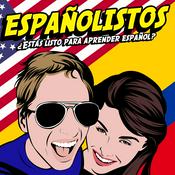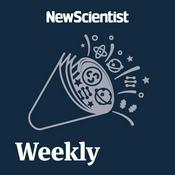413 odcinków
The world is running out of water - can cloud-seeding save us?; Why some people get stuck in grief; Is our black hole actually a clump of dark matter?
20.02.2026 | 30 min.Episode 346
The world is running out of water, with many countries suffering from significant water shortages. We’re now having to rely on groundwater that takes thousands of years to replenish – so what can we do? One group says, to save us from worldwide “water bankruptcy”, we need to artificially change the weather. Although “cloud-seeding” has been around for a long time, a new technique is getting big results in the US. But the idea is becoming increasingly controversial – with cloud-seeding held responsible for recent floods in Dubai and Texas. So will this help, or hurt?
Grief is a very normal experience for those who suffer a loss. But for 1 in 20 of us, this intense sadness doesn’t go away. “Prolonged grief disorder” was recognised as a distinct psychiatric condition in 2022 – but it was controversial, with some concerned we’re pathologising a normal human response. But new research suggests there really are unique things happening in the brains of those suffering from PGD. Could this help us find better ways to treat the condition?
Is the black hole in the centre of our universe actually a massive clump of dark matter? It seems ridiculous to ask, but the new theory is genuinely worth investigating. Researchers say Sagittarius A* is just the right size that it could defy everything we think we know about it. Could we have an answer to the puzzle of dark matter, right on our doorstep?
Hosted by Penny Sarchet and Timothy Revell, with guests Alec Luhn, Alexandra Thompson and Leah Crane.
To read more about these stories, visit https://www.newscientist.com/
Learn more about your ad choices. Visit megaphone.fm/adchoicesHow ancient humans crossed the vast ocean; Brain training for dementia; Life of science legend Maggie Aderin
13.02.2026 | 40 min.Episode 345
More than 8,500 years ago, ancient people crossed the ocean to the remote island of Malta for the first time. Long before compasses or sails were invented, these prehistoric people navigated the seas on logs, using the stars to travel vast distances. Recent findings show we’ve long underestimated the voyaging capabilities of stone-age hunter-gatherers. We discuss the many examples of ancient travel - and what this all tells us about the ancient mind.
Could just one hour of brain training a day be enough to stave off dementia? For the first time, an intervention against dementia has been tested in a randomised control trial. Lasting an impressive 20 years, participants in the trial played a brain training game for just a few hours a week - and the results were remarkable.
The legendary space scientist Maggie Aderin joins the show to discuss her new book, Starchild: My Life Under the Night Sky. The Sky at Night presenter discusses her motivation for writing a memoir, how her love of astronomy came about, what it was like as the only Black woman in her university class, her time working on the James Webb telescope - and more.
Hosted by Rowan Hooper and Penny Sarchet, with guests Maggie Aderin, Michael Marshall and Alexandra Thompson.To read more about these stories, visit https://www.newscientist.com/
Learn more about your ad choices. Visit megaphone.fm/adchoicesWhy Elon Musk plans to put 1 million satellites in orbit; Should we be giving sleep drugs to kids?; Why global pesticide risk is not improving
06.02.2026 | 37 min.Episode 344
Elon Musk has announced he wants to merge SpaceX with another of his companies, xAI, and launch one million satellites into space. One reason - according to Musk - is to eventually harness the entire power of the sun, a sci-fi sounding idea that would make us a Kardashev Type II civilisation. But he also wants the satellites to help power AI and move data centres off Earth. Is his goal realistic… and what would be the consequences?
Parents desperate to get their children to sleep are resorting to melatonin gummies - and it’s proving very effective. Melatonin is a sleep hormone which is only available on prescription in many countries. So some parents are importing them from America - where they can be bought over-the-counter. The trouble is the long-term side effects are not really known - and cases of melatonin overdose in children are on the rise.
Despite global agreement to cut the "overall risk" from pesticides by at least half by 2030 - new data shows we’re not even close. Countries made this commitment at a UN biodiversity meeting in 2022, but so far it’s been almost impossible to measure success. Thanks to a researcher in Germany, we now have a way to track our progress - and it’s not looking good. Could an increase in organic farming be the solution, or CRISPR gene editing?
Hosted by Rowan Hooper and Penny Sarchet, with guests Jonathan O’Callaghan, Alice Klein and Michael Le Page.
To read more about these stories, visit https://www.newscientist.com/
Learn more about your ad choices. Visit megaphone.fm/adchoicesMini human brain grows blood vessels; The geoengineering risk of termination shock; Trove of ancient fossils discovered
30.01.2026 | 40 min.Episode 343
The task of growing human brains in a lab has taken a step forward. Scientists have been creating brain organoids since 2013, but have now grown blood vessels in them for the first time. These mini brains resemble the developing cortex - the area of the brain that thinks, feels and stores memories. These advancements will help us learn more about the brain and conditions like dementia. But what if we go too far and they become conscious?
Geoengineering is being talked about more and more as countries fail to hit emissions targets. Without reductions we are on course to hit 4.5°C of warming by 2100, so new solutions are needed. But will artificially cooling the climate really help, or do even more damage? One popular method is solar radiation management - but that would require at least 100 aircraft working for hundreds of years. And new research shows that while it could work, the moment we stop doing temperatures would rebound rapidly. So is it worth even trying?
An incredible trove of ancient fossils have been discovered in a quarry in China, dating from 512 million years ago, just after Earth’s first mass extinction event. More than 8000 fossils have been analysed and nearly 60 per cent of the species are new to science. This group of arthropods, molluscs and brachiopods contain some very weird and wonderful creatures - including one which looks remarkably like a penis with long branching tentacles growing out of the end.
Hosted by Rowan Hooper and Penny Sarchet, with guests Carissa Wong, Alec Luhn and Sam Wong.
To read more about these stories, visit https://www.newscientist.com/
Learn more about your ad choices. Visit megaphone.fm/adchoices- Episode 342
Social media began with the best intentions - but it soon went sour. Platforms that once fostered connection are now driven by an endless desire to monopolise our time. From the endless scroll to ragebait content, social media is no longer designed to connect us with friends and family - but to profit from our attention. And that’s not to mention the damaging political influence it can have. As countries and governments move to act against it, is there a good solution to these problems?
Bitcoin is one big disaster for the environment. Mining bitcoin requires an inordinate amount of energy - and that cost only increases as more bitcoin is mined. It’s also a terrible investment these days, with some experts suggesting you’d be better off buying a load of Pokémon cards. Adding to that its role in fuelling crime on the dark web - and it becomes a strong contender for worst idea of the 21st century.
Carbon off-sets - another well intentioned solution to the climate crisis that’s gone horribly wrong. The idea is you can lessen the environmental impact of your actions, by off-setting the damage. Maybe you take a long-haul flight, but you plant a tree in return. The trouble is, not only does this give people permission to keep polluting the environment, it’s not even clear if offsetting actually works. But perhaps it’s not all bad?
Effective altruism is a surprising addition to the list, given that it’s meant to be a way of ensuring money goes to only the best causes. But judging which charities deserve donations above others is much more difficult than it seems. And part of the effective altruism movement suggests people should earn as much money as possible so they can one day give it away - which can obviously end badly. And then there are those who have taken it too far - ruining their life.
One seemingly good fix for environmental damage is the promise of alternative fuels, like natural gases, hydrogen and biofuels. But it turns out they probably do a lot more damage than good. Biofuels in particular require massive amounts of farmland to produce, which alone is highly polluting. Add to that the fact they’re driving up prices at the supermarket - perhaps there’s a better way to stop the climate from warming?
Hosted by Rowan Hooper and Abby Beall, with guests Matt Sparkes, Leah Crane, Michael Le Page and Joshua Howgego.To read more about these stories, visit https://www.newscientist.com/
Learn more about your ad choices. Visit megaphone.fm/adchoices
Więcej Edukacja podcastów
Trendy w podcaście Edukacja
O The world, the universe and us
From the evolution of intelligent life, to the mysteries of consciousness; from the threat of the climate crisis to the search for dark matter, The world, the universe and us is your essential weekly dose of science and wonder in an uncertain world. Hosted by journalists Dr Rowan Hooper and Dr Penny Sarchet and joined each week by expert scientists in the field, the show draws on New Scientist’s unparalleled depth of reporting to put the stories that matter into context. Feed your curiosity with the podcast that will restore your sense of optimism and nourish your brain.
For more visit newscientist.com/podcasts
Strona internetowa podcastuSłuchaj The world, the universe and us, 6 Minute English i wielu innych podcastów z całego świata dzięki aplikacji radio.pl
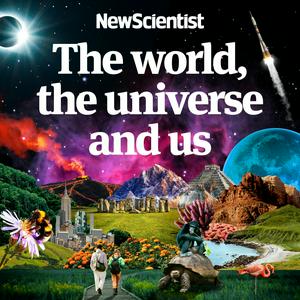
Uzyskaj bezpłatną aplikację radio.pl
- Stacje i podcasty do zakładek
- Strumieniuj przez Wi-Fi lub Bluetooth
- Obsługuje Carplay & Android Auto
- Jeszcze więcej funkcjonalności
Uzyskaj bezpłatną aplikację radio.pl
- Stacje i podcasty do zakładek
- Strumieniuj przez Wi-Fi lub Bluetooth
- Obsługuje Carplay & Android Auto
- Jeszcze więcej funkcjonalności


The world, the universe and us
Zeskanuj kod,
pobierz aplikację,
zacznij słuchać.
pobierz aplikację,
zacznij słuchać.




